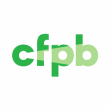MPIW Backs Tokenization, Calls for Coordination (Sept 25, 2014)
A key payments industry group is throwing its support behind tokenization—with a few caveats as to the hurdles that remain before broad industry adoption can occur, including coordinating different tokenization models. The Mobile Payments Industry Workgroup (MPIW)—a consortium of more than 40 mobile payments stakeholders, convened by the Federal Reserve Banks of Atlanta and Boston—met in early June to discuss tokenization initiatives being developed for retail payments. In a summary of the meeting released this week, the MPIW said tokenization was a promising method of counteracting payment fraud, such as retailer data breaches. Among the advantages of tokenization—which uses randomly generated numbers to replace sensitive financial information during transactions—are limiting the spread of cardholder data throughout a business, along with “turning off” a token and reissuing a new one immediately should fraud occur, the group said.
But there remain major challenges toward developing common tokenization standards, said the MPIW—especially given the number of different models currently being developed, including those from EMVCo, The Clearing House, the Payment Card Industry Security Standards Council and the Accredited Standards Committee X9. The MPIW has formed a subgroup to further investigate these challenges, which include the use of static versus dynamic tokens, how to prevent creation of fraudulent tokens, use of token risk assurance levels, as well as impacts to infrastructure, interoperability and consumer usability.
See related stories:









































